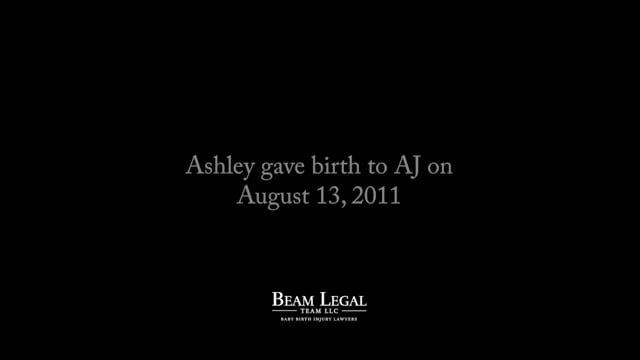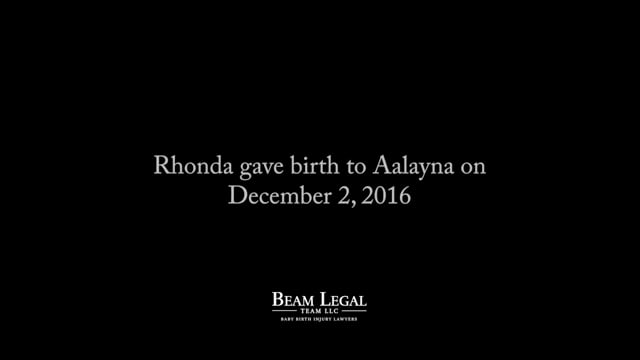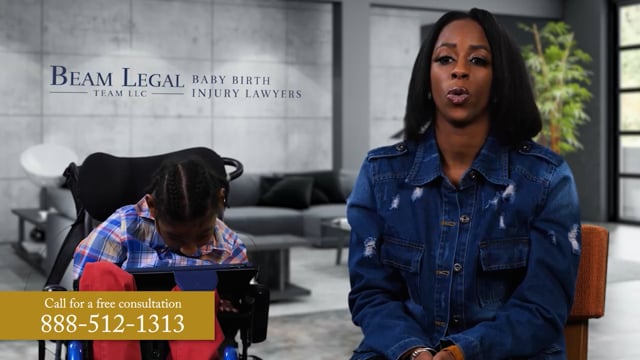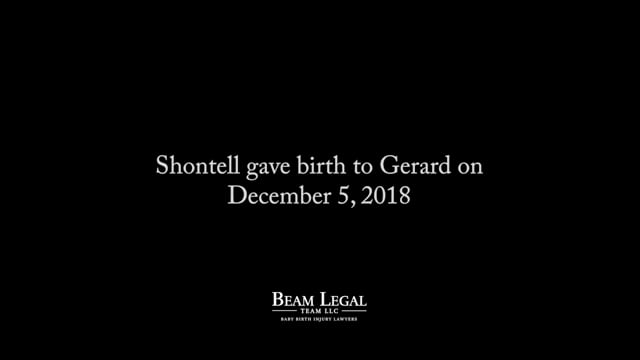When a newborn’s brain is injured at birth, the baby can suffer from developmental issues, including mental disabilities. Identifying a birth injury is difficult, especially without the guidance of a skilled trial lawyer. If you have observed abnormal signs in your newborn and your doctor is not providing the answers you are seeking, you should consult with a Chicago birth injury attorney at Beam Legal Team. Our legal team can help you not only investigate your child’s potential case but also help you understand your legal rights as a parent.
What are the Causes of Intellectual Disability?
There can be many causes of intellectual disability. Our firm can help you with the following kinds of cases:
- IUGR (intrauterine growth retardation) that should have been diagnosed or treated by your doctor
- Preeclampsia or hypertension during pregnancy (high blood pressure)
- Pregnancy complications not properly diagnosed and addressed
- Excessive force used during a delivery
- Brain injury during birth
Request a free consultation: Call us at (866) 404-5221 for more information. We serve clients nationwide.
Types of Mental Disabilities Following Birth Injuries
Oxygen deprivation or trauma to an infant’s brain during labor and delivery can cause various types of mental disabilities, including:
- Global Developmental Delays: Significant setbacks in reaching cognitive, motor, language, and social milestones
- Intellectual Disability: Permanent limitations in cognitive abilities, reasoning, learning and problem-solving skills
- Specific Learning Disorders: Difficulties with reading, writing, math, or processing or comprehending information
- Cerebral Palsy: A disorder impacting muscle tone, movement, and motor skills, sometimes accompanied by cognitive impairment
- Seizure Disorders: Abnormal excessive or synchronous neurological firing in the brain causing recurring seizures
- Psychiatric Disorders: Increased risk of conditions like ADHD, anxiety, depression, bipolar disorder, and schizophrenia
How to Recognize Intellectual Disability in Infants and Young Children
Early identification matters—for your child’s care and for protecting your legal rights. While every child develops at their own pace, the following red flags after a difficult pregnancy, labor, or delivery may warrant a prompt medical evaluation:
Development & Behavior
- Missing key milestones (rolling, sitting, standing, walking) well beyond expected age ranges
- Limited babbling by ~9–12 months; few words by ~15–18 months; very slow vocabulary growth
- Difficulty following simple directions or solving simple problems for age
- Challenges with play, social interaction, or self-care (feeding, dressing, toileting) compared to peers
- Persistent feeding problems, poor weight gain, or unusually weak muscle tone (hypotonia)
Neurological Signs
- Abnormal muscle tone or reflexes that don’t fade when they should
- Recurrent seizures or “staring spells” diagnosed as seizure activity
- Abnormal movements or posture; poor coordination
Medical History Tied to Birth Injury
- Fetal distress, non-reassuring heart tracings, meconium, shoulder dystocia, or prolonged/obstructed labor
- Delayed decision to perform a C-section
- Traumatic instrument-assisted delivery (forceps or vacuum)
- Low Apgar scores, need for resuscitation, cooling therapy, or NICU stay
What to Do Next
- Ask your pediatrician for a developmental screening and referral (e.g., Early Intervention).
- Request appropriate testing when recommended (e.g., MRI, EEG, metabolic/genetic testing, and standardized developmental tools).
- Keep a timeline of milestones, therapy notes, school/IEP evaluations, and all medical records.
If your child’s delays appear linked to preventable mistakes during labor or delivery, speak with a birth injury lawyer immediately. Our team can secure records, consult medical experts, and determine whether negligence caused your child’s disabilities.
How Long Do You Have to File a Birth Injury Lawsuit in Illinois?
Deadlines are strict. Missing one can end your case, no matter how strong your evidence may be.
In Illinois (General Rules):
- Birth Injury Claims for a Child: These must typically be filed within 8 years of the injury (for birth injuries, that usually means before the child’s 8th birthday). In limited circumstances involving certain disabilities, the outside limit can extend up to the child’s 22nd birthday.
- Maternal Medical Malpractice Claims: These must generally be filed 2 years from when the injury was—or reasonably should have been—discovered, and no more than 4 years from the negligent act.
- Potential Exceptions and Special Rules: Some claims involving federally funded clinics or providers require an administrative claim within 2 years (Federal Tort Claims Act) before a lawsuit can be filed. Other states have different—sometimes shorter—deadlines. Additional exception doctrines may apply in rare cases, but you should never rely on an exception without legal advice.
Why Acting Now Matters
Hospitals and insurers start building their defense quickly. Records can be changed in routine course, staff move on, and memories fade. Early legal action helps preserve critical evidence and gives your family the best chance to obtain the resources your child will need.
Where Chicago Families Go for NICU & Pediatric Stroke Care
Chicago families often receive diagnosis or follow-up care at major centers in and around the city. While we are not endorsing any provider, parents commonly seek care at:
- Ann & Robert H. Lurie Children’s Hospital of Chicago (pediatric neurology, NICU, therapy services)
- University of Chicago Medicine – Comer Children’s Hospital (pediatric neurology/stroke, NICU)
- Rush University Children’s Hospital (neurology/rehab)
- Northwestern Medicine – Prentice Women’s Hospital (labor and delivery, maternal-fetal medicine)
- John H. Stroger, Jr. Hospital of Cook County (NICU, safety-net services)
- Advocate Children’s Hospital (Park Ridge, Oak Lawn) (Chicagoland pediatric specialty care)
Cook County & City of Chicago Records: What to Request
Strong cases start with strong records. In Chicago, parents typically request:
- Hospital records (labor and delivery, fetal monitoring strips, operative notes, NICU charts) via the facility’s Health Information Management (HIM) department
- Pediatric neurology and therapy records from follow-up clinics where your child receives care
- Birth certificate from Cook County vital records.
Legal Steps After Mental Disability Diagnosis
If your child has been diagnosed with an intellectual or developmental disability stemming from a potential birth injury, taking legal action right away is critical to the success of your case. Here are a few steps to consider along your legal path:
- Collect all medical records related to the pregnancy, labor, delivery, and any complications that occurred.
- Maintain a detailed log of your child’s developmental milestones and any challenges they encounter.
- Request copies of all test results, evaluations, and assessments that may help to diagnose the disability.
- Consult a birth injury lawyer as soon as possible to have your evidence reviewed.
You will have a limited timeframe to file a claim, so don’t delay getting legal help. Delays can also lead to vital evidence being lost—medical records may be harder to obtain, witness memories may fade, and the direct link between the negligence and the injury can become more difficult to prove. Meanwhile, medical expenses and care needs will continue to mount, putting financial and emotional strain on your family.
Promptly consulting with a birth injury lawyer is critical to secure the resources your child needs.
Understanding Medical Negligence in Birth Injuries
For a birth injury case to be viable, it must be proven that substandard care occurred through medical negligence, such as:
- Failure to properly monitor fetal distress signals and the mother’s vitals during labor
- Delay in ordering an emergency C-section when complications arose
- Improper use of delivery tools like forceps or vacuum extractors
- Inadequate treatment for maternal health conditions that indirectly harmed the baby
To prove medical negligence caused the birth injury and subsequent damages, an experienced birth injury lawyer often needs to consult medical experts and thoroughly investigate the evidence. Then, they can build a strong case showing how the doctor failed to provide the standard level of care, and how their actions or inactions directly led to the injury.
Chicago Birth Injury Attorneys Representing Families from Sea to Shining Sea
Having a child with a brain injury can be challenging and stressful for parents and family. It requires a high level of care, which can be costly and add financial stress to the already difficult situation. If caused by substandard medical care by your hospital or doctor, you may be entitled to financial compensation. We advocate for the rights of injured children to obtain justice in a court of law. No matter where you live in the U.S., our experienced birth injury lawyers in Chicago can help you take swift and decisive action.
Get in touch with our nationally recognized firm to discuss your options and rights.







